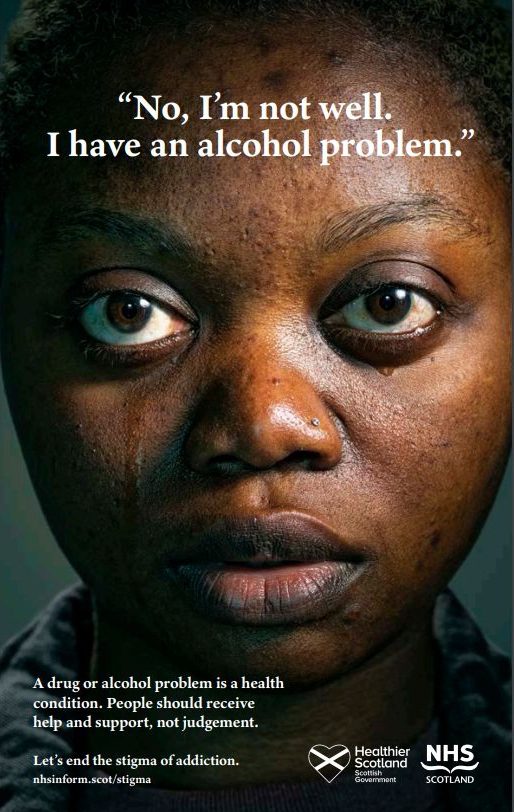A national campaign highlighting the damage caused by the stigma of problem drug and alcohol use is being launched today Monday 6 December.
Television and newspaper adverts and posters on billboards will emphasise that a drug or alcohol problem is a health condition and judging individuals affected can have a devastating effect on their ability to seek and access help and support.
A webpage on NHS Inform will support the campaign with further information on how the public can help tackle the problem.
Drugs Policy Minister Angela Constance said:
“This is a hard-hitting national campaign which encourages people to see the personal story behind the stereotype.
“Stigma is damaging not only to the individual in terms of their mental health and sense of self-worth but it also discourages them from coming forward to get the help they need. It also impacts on friends and family members.
“We must remember that people with a substance use problem are family members, neighbours, friends and colleagues.
“By addressing stigma, and the silence and alienation it causes, we make it easier for people to seek help and that is to the benefit of each and every one of us.”
Public Health Minister Maree Todd said:
“We want to make it easy for people to ask for help. We know that passing judgment on people who are looking for help and support can harm their recovery. When people are seeking help with alcohol and drugs, kindness and compassion saves lives.”
We Are With You Executive Director Andrew Horne said:
“We Are With You is one of the largest providers of drug and alcohol services in the country. We are acutely aware that stigma and shame are major reasons for people not or delaying seeking help. This hard hitting national campaign challenges our view that people with drug and alcohol problems are different. This is not true. In Scotland, drug and alcohol issues are sadly very common and can affect anyone.
“People experiencing problems shouldn’t be made to feel ashamed as we know that stands in the way of people getting the help they need.”
BACKGROUND
Further information on the stigma campaign can be found at NHS Inform





